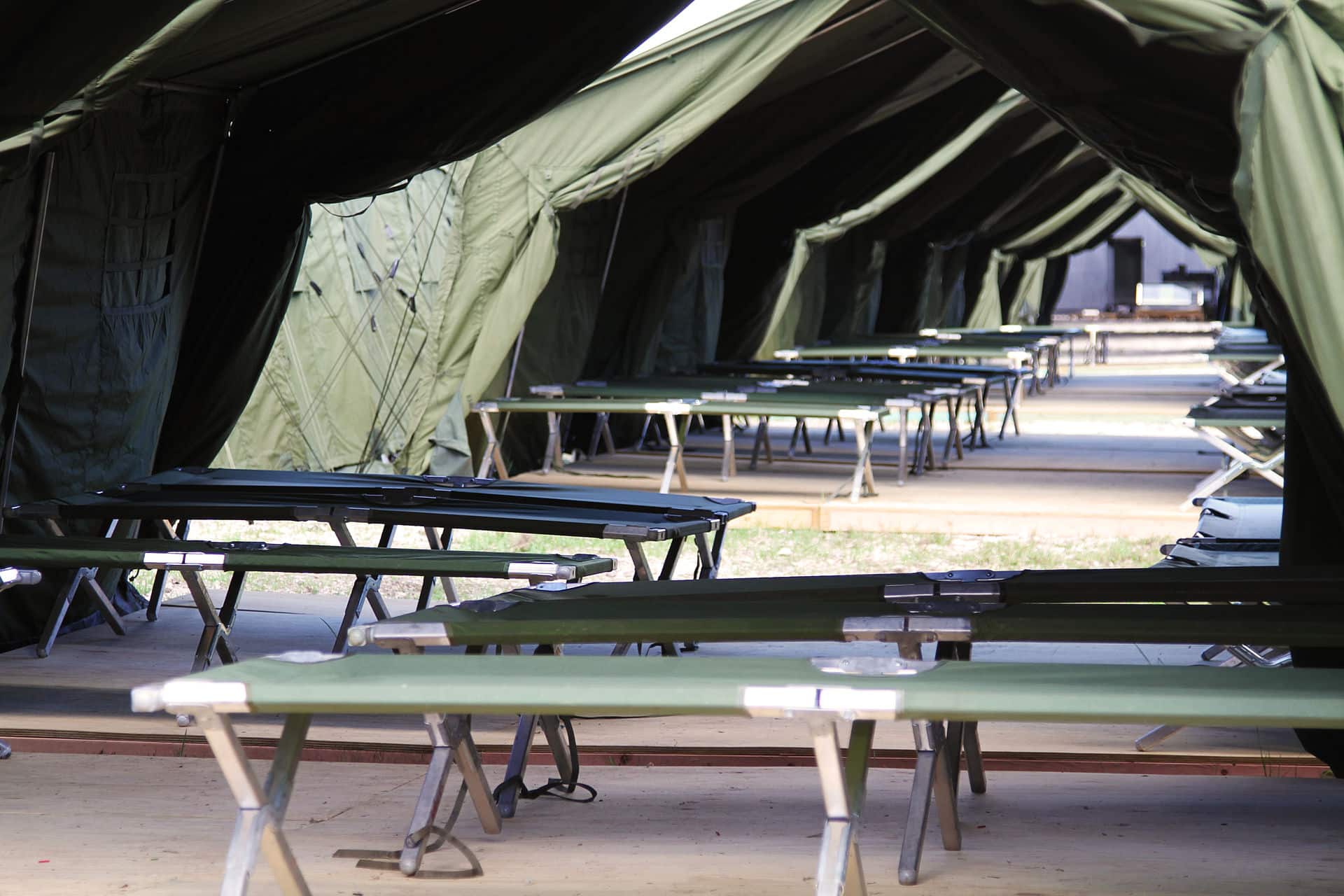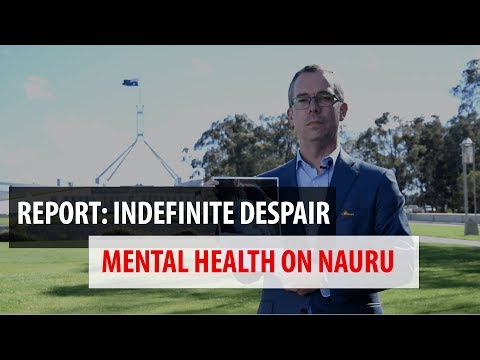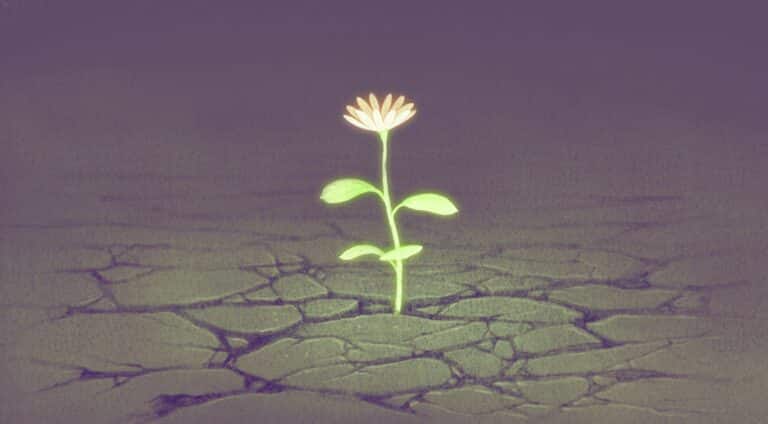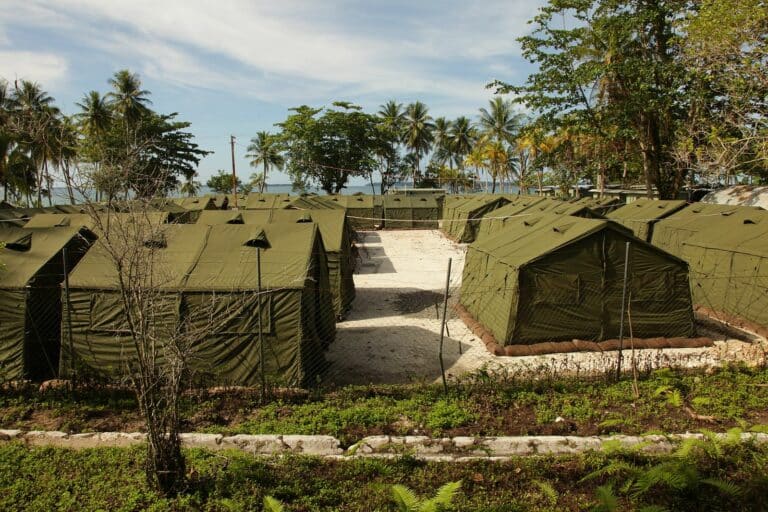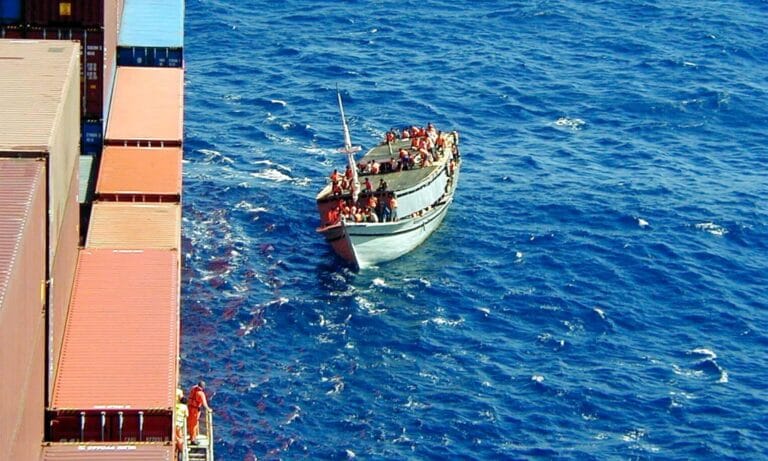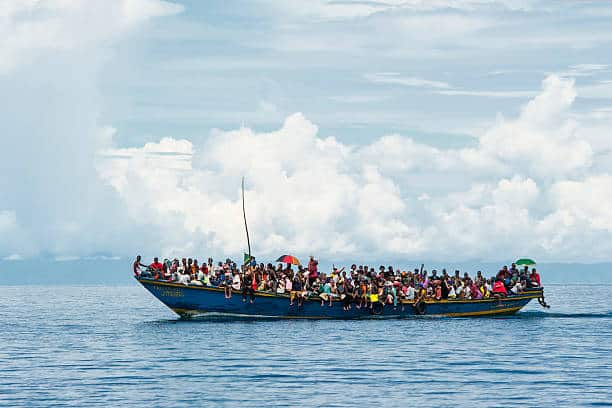Nauru Regional Processing Centre
The Republic of Nauru is the world’s smallest island nation. In 2001, the Nauru Regional Processing Centre was opened under Australian Prime Minister John Howard’s government. It was closed in 2008 but reopened in 2012 under Prime Minister Julia Gillard’s Labor government. Australia signed an initial Memorandum of Understanding (MOU) with Nauru on 29 August 2012 and refugees began to arrive the following month.
Since 2013, over 1,000 asylum seekers have been imprisoned on Nauru. Conditions on Nauru have received international condemnation, as facilities on the impoverished island are not sufficient for the processing and resettlement of asylum seekers. In 2012, Amnesty International visited the centre and described it as “a human rights catastrophe […] a toxic mix of uncertainty, unlawful detention and inhumane conditions”. In 2016, an Amnesty International report stated that the treatment of asylum seekers on Nauru was ‘akin to torture’. The 2016 “Nauru Files“, a cache of over 2,000 incident reports leaked from Nauru by service providers that documented assaults, sexual abuse, self-harm attempts, child abuse and horrific living conditions.
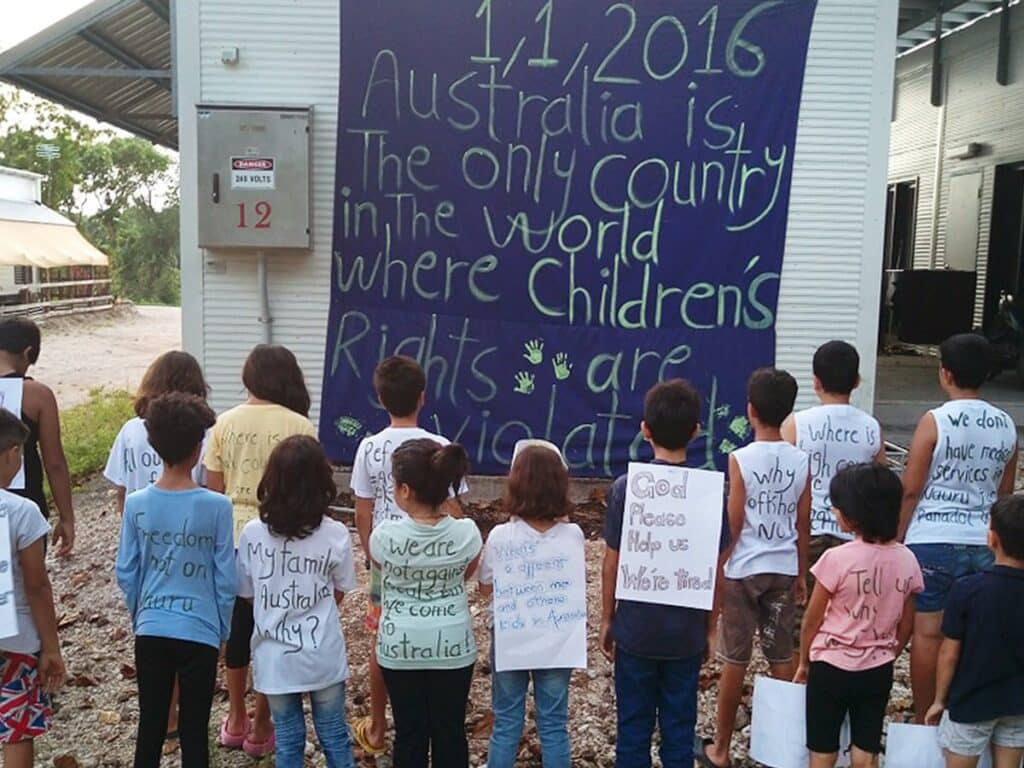
Unlike Manus, which from 2012 only held men in its facilities, Nauru held women, men and children. There were 3 main camps, which were essentially tents, with no air conditioning in the sweltering Nauru sun. An independent report released in March 2015 revealed reports of rape within the centre, and numerous “reported and unreported allegations of sexual and other physical assault” of both minors and adults. In 2015 refugees were given freedom of movement in Nauru, however, this may have caused more problems as the incidence of assaults were reported to increase. That same year, several former Australian social workers at the detention centre wrote an open letter claiming that multiple instances of sexual abuse against women and children had occurred.
When the deal was struck between the USA and Australia to take 1,250 refugees from Manus and Nauru, then PM Malcolm Turnbull said that priority would be given to the most vulnerable, namely families on Nauru. In 2019, the last four families with children departed Nauru for the USA.
As of May 31, 2021, 100 refugees and asylum seekers remain on Nauru.
Please note this video contains content that may be distressing to some viewers. Topics include suicide and psychological distress.
